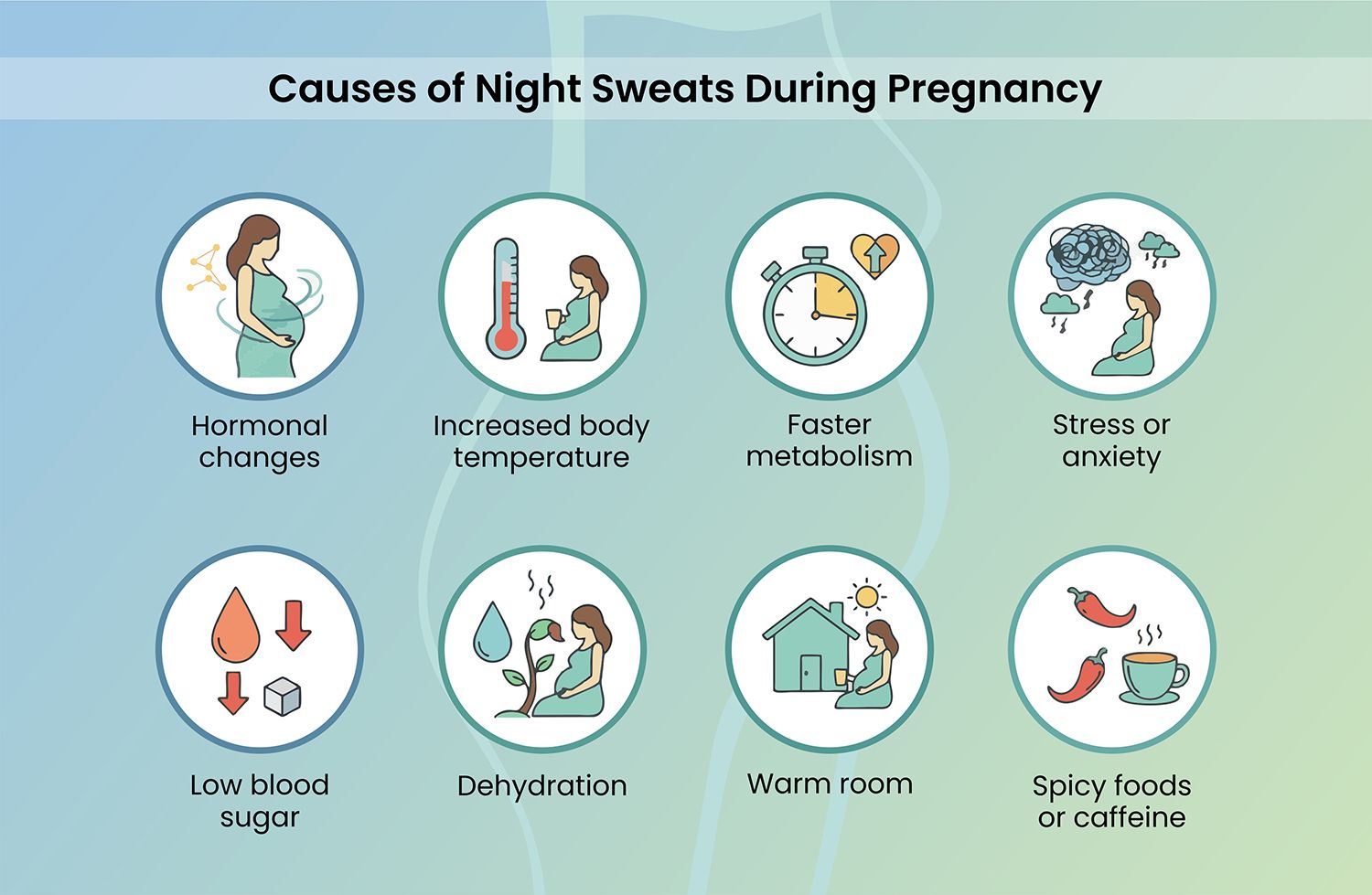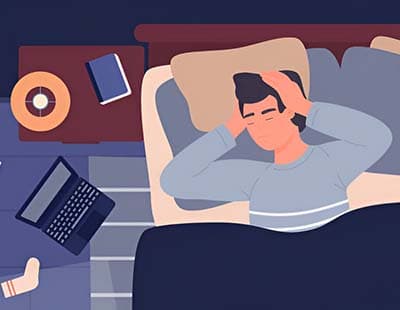Growing a human inside you and giving birth to a life is not easy. It comes with everyday challenges like morning sickness and nausea before you get to hold your little one in your arms.
There is no denying that being pregnant can highly affect your sleep, causing issues like insomnia or frequent urination. Throughout your journey of nine long months, you will have to deal with these uncomfortable symptoms along with an aching back and lower body.
You might face heartburn during pregnancy and difficulty finding the appropriate position to sleep comfortably at night. After dealing with all these throughout the day, pregnancy challenges don't stop here. Next, you may experience night sweats when you try to get some much-needed sleep.
What are Pregnancy Night Sweats?
Night sweats while you’re pregnant are really stronger than what people usually experience on normal nights. It can make your clothes and bed all wet, making you feel extremely hot, increasing your heart rate, and making you wake up covered in sweat.
According to a 2013 study, more than a third of women say they go through "nighttime hot flashes" during their pregnancy period or even after giving birth.
Causes of Night Sweat During Pregnancy
Apart from your basic fluctuating body temperature, there are certain issues related to night sweats while pregnant, such as the following:
1. Increase in Blood Flow
When you're pregnant, the amount of blood in your body goes up by 40% and keeps increasing until the last few months. This makes your blood vessels widen to send more blood to your skin, making you feel warmer. Also, the higher temperature in your skin messes with your body's natural way of controlling your main temperature, causing you to sweat a lot and maybe wake up feeling wet.
2. Hormonal Changes
When you are pregnant, your body goes through a lot of physical and hormonal changes along with an increase in temperature. The rise in hormones like estrogen and progesterone makes you sweat vigorously to maintain the right temperature throughout your body.
3. Thyroid Issues
The hormones from your thyroid help control the warmth of your body and how fast you use energy. When you're pregnant, these hormones can go up, making you feel extremely hot, especially when sleeping. If you already have thyroid problems, it might get even harder for you to control your body’s temperature, leading to night sweats.

4. Infections
If you have night sweats during pregnancy and also have other symptoms like cramps, aches, fever, or diarrhea, it could be a sign of a serious infection. Since your immune system is lower when you're pregnant, you're more at risk of getting infections. If you notice these symptoms, talk to your doctor right away.
5. Medication Side Effects
Some common medicines for colds, congestion, and heartburn during pregnancy might make you more likely to have night sweats when you're pregnant. Before taking any medicine, ask your pharmacist or doctor about the chance of night sweats.
6. Low Blood Sugar
When you're pregnant, your body uses a lot of energy to help your baby grow. If you don't eat enough or have a balanced diet, your blood sugar can drop, leading to heavy sweating at night. Make sure you're getting the right amount and kinds of calories to avoid this.
Are Night Sweats During Pregnancy Fatal?
Night sweats that happen during pregnancy are usually considered a normal response to changes in hormones and metabolism, and are not serious. Most women experience them at some point, since they can occur more so during the first and third trimesters.
However, sweating can be concerning if it is combined with fever, chills, lightheadedness, tachycardia, or weight loss, as these symptoms could indicate an infection or some other underlying condition requiring medical evaluation. Night sweats are generally benign, as well as manageable with some minor adjustments to lifestyle.
How to Prevent Sweating at Night During Pregnancy?
Night sweats are very common during pregnancy, due to increased blood flow, metabolism and changing hormones. Although uncomfortable, there are some simple ways to help you cool down and sleep better throughout the night.
- Wear loose and comfortable clothes.
- Stay hydrated to get some better sleep.
- Invest in cooling pillows and bedding.
- Try to avoid eating spicy foods or working out before bed, as that can make you sweat.
- Take the support of pregnancy pillows or cooling pillows.
When Should I Be Concerned About It?
In most cases, having night sweats during your pregnancy period is normal and normally it is not a sign of a serious health issue. However, excessive sweating can sometimes be a warning sign, especially for women with thyroid problems.
It becomes a concern only when you sweat while having a high temperature due to sickness or infection. If you have a fever during pregnancy and other symptoms that might indicate illness or infection, such as cough, pregnancy back pain, or discomfort while urinating, it is extremely important to contact your healthcare provider immediately.
Risk Factors of Night Sweats During Pregnancy
During pregnancy, multiple risk factors can increase the body’s propensity to overheat with night sweats. Warm weather, lack of cross-ventilation, or sleeping in a small room can all lend themselves to heat condensing with sweat.
If you are overweight or carrying multiple babies, this can increase metabolic activity and body temperature. Stress from emotional distress can also increase sweating via an increase in sweat gland stimulation. Dietary habits can also contribute to temperatures. For example, spicy foods and caffeine increase internal heat.
Pregnancy night sweats can also be caused by tight or synthetic sleepwear that inhibits airflow and dehydration, which can compromise the body's ability to regulate its temperature.
When to See a Doctor?
By now, you know, night sweats when pregnant only happen because of changing hormones and are generally a normal pregnancy sign. However, sometimes night sweats can be linked to other problems like:
- infections,
- issues with your thyroid, or
- certain types of cancer.
Also, if you notice cold sweats instead of hot ones, along with weight loss, fever, or pain in your pelvis or belly contact your healthcare professional immediately.
Final Thoughts
Experiencing night sweats while pregnant can be a little challenging, especially when you're trying to get a good night's sleep. It is a pretty common thing that occurs due to all those hormonal changes your body goes through. However, it is usually not something to worry too much about. Remember, it is your body's way of adjusting to the amazing changes of growing a little one inside you.






















